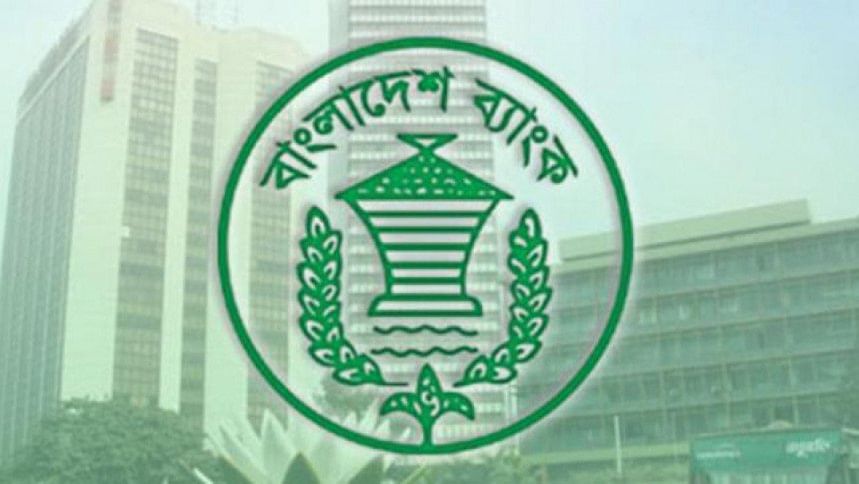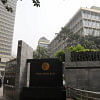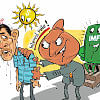BB raises policy rate at sharpest pace in a decade

Amid criticisms over the delay in squeezing money supply, the Bangladesh Bank yesterday made borrowing costlier as it raised the policy rate by 75 basis points to 7.25 percent to step up its fight against inflation.
This is the sharpest pace of rate increase in at least a decade, said a central banker. This was the seventh hike in the past 18 months as consumer prices have remained at an elevated level.
Average inflation rose 9.63 percent in September, way above the central bank's target of 6 percent for the current fiscal year.
The monetary policy committee of the Bangladesh Bank decided to raise the policy rate, also known as the repo rate. It comes into effect today.
The policy rate is a powerful arm of the monetary policy of the central bank as it can regulate the country's money supply, inflation levels and liquidity.
Commercial banks borrow money from the central bank at the repo rate. When the central bank increases the repo rate, the interest rate of loans and deposits of commercial banks also goes up.
The last time the BB raised the rate came in June when it went up by 50 basis points to 6.50 percent.
But the BB has been much behind the rest of the world in raising policy rates and making them more potent.
For example, the Federal Reserve of the US and the European Central Bank kept hiking policy rates in their fight against record inflation throughout last year and this year.
The US has raised interest rates to the highest level in 22 years to stabilise prices and make borrowing costlier. It has raised the rate 11 times since 2022.
As a result, annual inflation in the world's largest economy was expected to have reached 3.6 percent in August, much lower than the June 2022's peak of 9.1 percent.
Similarly, the eurozone inflation halved from an all-time high of 10.6 percent in October last year to 5.3 percent in August this year.
The BB started to increase the repo rate in May last year as inflation went up following a sharp increase in the commodity prices driven by the crisis brought on by the Russia-Ukraine war. The rate has since been revised upwards.
But the hikes have not yielded the expected results as funds were still cheaper owing to the 9 percent interest rate ceiling, which had been in place since April 2020.
The central bank withdrew the lending rate cap in June and introduced a new interest rate regime to meet conditions attached to the International Monetary Fund's $4.5 billion loan. But higher inflation has already brought about a cost-of-living crisis.
As per the central bank's new formula, banks can impose a 3 percent margin on the six-month moving average rate of treasury bills, abbreviated as SMART.
The SMART was 7.20 per cent in September and the same rate will be applicable in October, up from 7.14 percent in August.
Due to the rise in the policy rate, the highest rate of standing lending facility would be 9.25 percent from 8.50 percent and the rate of standing deposit facility would be 5.25 percent from 4.50 percent, said a central bank notice yesterday.
Ahsan H Mansur, executive director of the Policy Research Institute, said the policy rate hike will work only if the central bank allows the lending rate to move up.
"Otherwise, it will not be able to curb the inflationary pressure."
He thinks the policy rate will have to be raised gradually for several months in a bid to tame the inflation rate and stabilise the exchange rate.
The rising interest rate may hurt investments but the former official of the IMF says now the main target should be bringing down the inflation rate to a reasonable level and making the exchange rate stable.
The taka has lost its value against the US dollar by about 28 percent in the past 18 months.
The rate hike came at a time when private sector credit growth has continued to dip as banks and borrowers adopt a go-slow strategy amidst the stress on the economy and growing apprehensions of a political crisis centring the upcoming parliamentary elections.
In August, the growth was 9.75 percent whereas it was 9.82 percent in the preceding month.
The central bank took the rate hike measure to tighten the money supply at a time when the overall interest rate is increasing.
In July, the weighted average interest rate on deposits stood at 4.46 percent, up from 4.38 percent a month ago. The weighted average rate on loans edged up to 7.75 percent in July from 7.31 percent in June.
Syed Mahbubur Rahman, managing director and CEO of Mutual Trust Bank Ltd, said the hike in the policy rate will definitely impact the market, especially at a time when the liquidity situation is facing stress.
"The stress will intensify further."
Rahman said the deposit rate will increase but the credit flow to the private sector will decline. The net interest margin, the difference between interest expenses and interest revenue, will go down too.
"The move is expected to contain inflation. But let's see how it plays out."

 For all latest news, follow The Daily Star's Google News channel.
For all latest news, follow The Daily Star's Google News channel. 






Comments